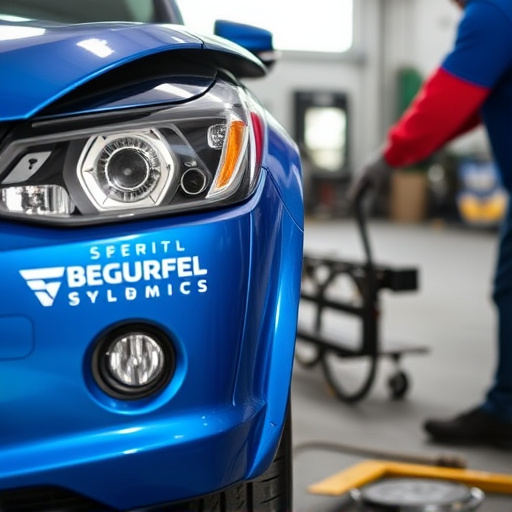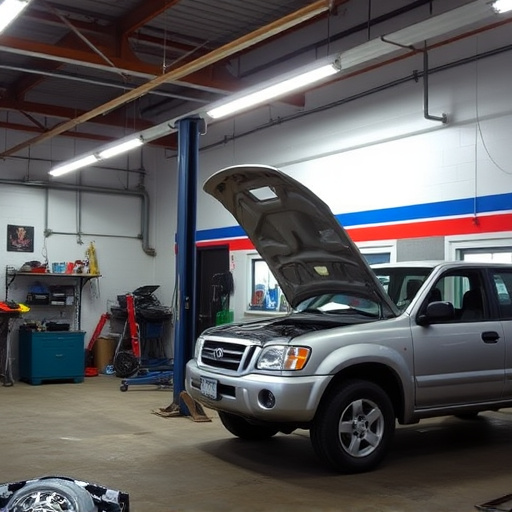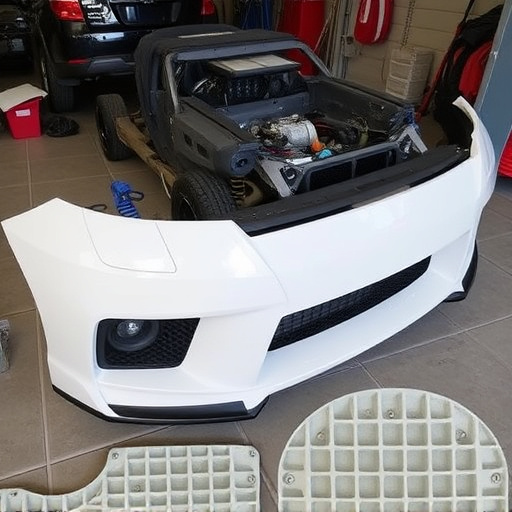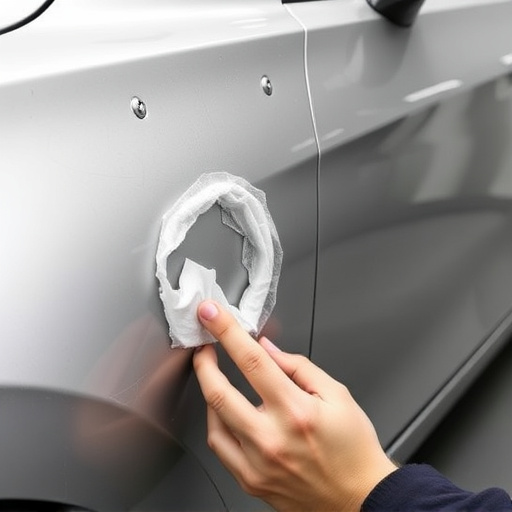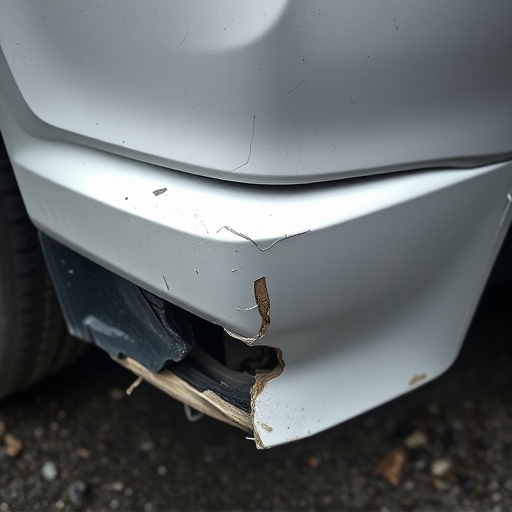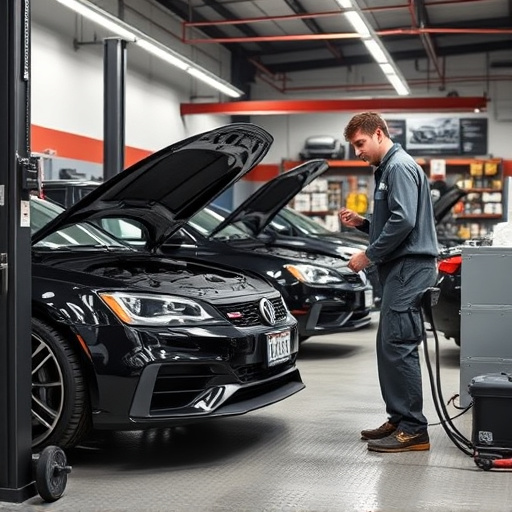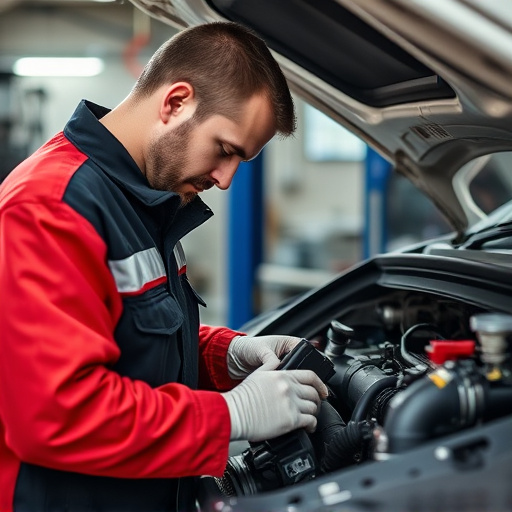Core support replacement is a vital automotive process ensuring vehicle safety and structural integrity after damage. In a sustainability-focused world, eco-friendly practices in manufacturing and repair, like core support replacement with durable materials, reduce waste, environmental impact, and costs, promoting circular economy principles for long-term financial and planetary benefits.
In today’s sustainable manufacturing landscape, adopting core support replacement (CSR) practices isn’t just an environmental imperative; it’s a strategic business decision. This article delves into the foundational understanding of CSR, exploring its role in enhancing product longevity and reducing waste. We’ll uncover the myriad benefits of implementing sustainable repair practices, focusing on cost savings and environmental impact. By embracing eco-friendly solutions, manufacturers can navigate towards a more sustainable future while bolstering their bottom line.
- Understanding Core Support Replacement: A Fundamental Concept
- Benefits of Sustainable Repair Practices in Manufacturing
- Implementing Eco-Friendly Solutions for Longevity and Cost Savings
Understanding Core Support Replacement: A Fundamental Concept
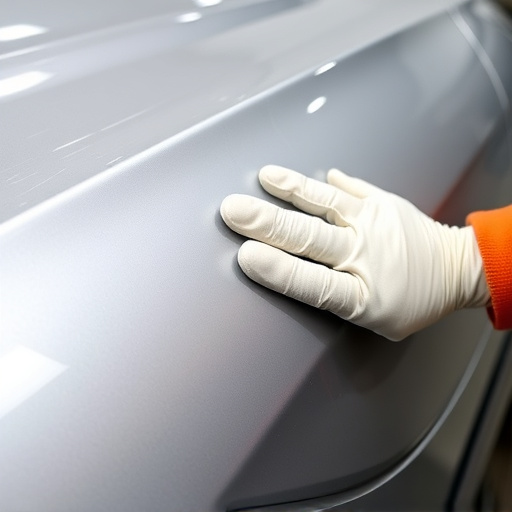
Core support replacement is a critical concept within the automotive industry, particularly focusing on structural integrity and safety in car body repair. It involves the meticulous process of replacing or reinforcing the core components that hold a vehicle together after an accident or damage. These core supports, often made from high-strength materials, play a vital role in ensuring the stability and strength of the vehicle’s frame during and following automotive collision repair.
By understanding core support replacement, technicians can effectively navigate complex car body repair scenarios, especially when dealing with frame straightening. This process demands precision and expertise to maintain the original structural integrity, ensuring vehicles return to their pre-accident condition. It is a cornerstone of sustainable repair practices, promoting long-lasting vehicle performance and safety on the road.
Benefits of Sustainable Repair Practices in Manufacturing

In today’s world, where sustainability is at the forefront of many industries, manufacturing is embracing eco-friendly practices, and sustainable repair techniques are no exception. One of the key benefits of implementing these strategies is reduced environmental impact. By encouraging core support replacement and prioritizing durable materials, manufacturers can significantly minimize waste generation and material consumption, leading to a greener production process. This shift not only benefits the planet but also contributes to long-term cost savings for businesses.
Moreover, sustainable repair practices enhance resource efficiency. Instead of constantly producing new parts, which demands significant energy and raw materials, companies can focus on mending and refurbishing existing components. This approach is particularly advantageous for autobody repairs, tire services, and car paint services, where many issues can be resolved without complete replacements. As a result, businesses reduce their reliance on finite resources, lower operational costs, and contribute to a circular economy, ensuring a more sustainable future in manufacturing.
Implementing Eco-Friendly Solutions for Longevity and Cost Savings

In today’s eco-conscious world, implementing sustainable practices in core support replacement and automotive restoration has become paramount. By adopting green solutions, businesses in vehicle bodywork and car paint services can achieve remarkable longevity while reducing operational costs. For instance, utilizing environmentally friendly materials and techniques during core support replacement minimizes the environmental footprint without compromising structural integrity.
These eco-friendly methods extend the lifespan of vehicles, delaying the need for frequent repairs or replacements. Moreover, sustainable practices often lead to cost savings due to reduced material waste, lower energy consumption, and minimized exposure to toxic chemicals. As a result, businesses not only contribute to a greener environment but also foster long-term financial stability through responsible core support replacement and automotive restoration techniques.
Core support replacement and sustainable repair practices are essential components of modern manufacturing. By understanding the fundamental concept of core support replacement, leveraging the benefits of eco-friendly solutions, and implementing strategies that enhance longevity and cost savings, manufacturers can contribute to a greener future while maintaining operational efficiency. These practices not only reduce environmental impact but also foster a more resilient and adaptable approach to production.


